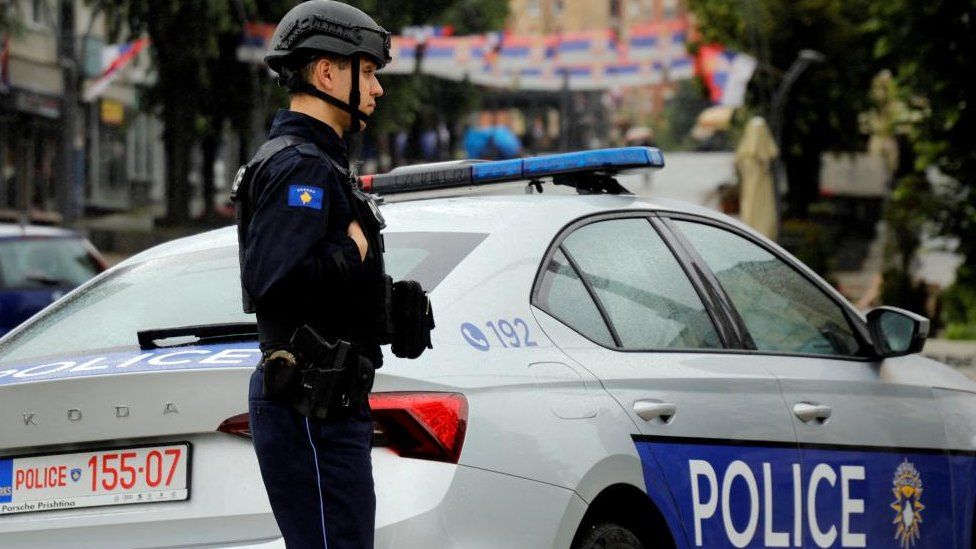A police officer has been killed and another injured in a shooting in area of Kosovo near Serbia.
Kosovo Prime Minister Albin Kurti said the attack in the northern village of Banjska in Leposavic involved “professionals” using heavy weapons. The incident is ongoing, Mr Kurti said.
Tensions have run high in Kosovo, after violent clashes followed a disputed local election in May.
EU-mediated political talks designed to stabilise the situation have stalled.
Kosovo declared independence in 2008 but Serbia – along with Belgrade’s key allies China and Russia – does not recognise it.
Many Serbs consider it the birthplace of their nation. But of the 1.8 million people living in Kosovo, 92% are Albanian and only 6% Serbian.
Sunday’s shooting happened at about 03:00 (01:00 GMT), after police said they arrived in Banjska, near the border with Serbia, where a blockade had been reported.
Officers were attacked from several different positions with “an arsenal of firearms, including hand grenades and shoulder-fired missiles”, they said in a statement.
- Why is violence flaring up in Kosovo?
Organised crime with political, financial and logistical support from Belgrade “is attacking our country”, Prime Minister Kurti said, adding that the perpetrators and those who issued their orders would be punished.
Kosovo’s President Vjosa Osmani said the incident, “orchestrated by Serbian criminal gangs”, was an attack on law and order and “against the sovereignty of the Republic of Kosovo”.
She condemned the “open aggression of Serbia towards Kosovo” and called on the country’s allies to support Kosovo in establishing law and order.
Ms Osmani urged people to remain united and expressed her confidence in Kosovo’s police.
Serbia has not commented on the incident.
Unrest engulfed northern Kosovo in May after Kosovo Albanian mayors were installed in majority-Serb areas, after Serb residents boycotted local polls.
Nato deployed an additional 700 troops to Kosovo to deal with unrest in the northern town Zvecan following the elections.
Some 30 Nato peacekeepers and more than 50 Serb protesters were hurt in the ensuing clashes.
The latest EU-mediated talks collapsed last week, with the bloc’s foreign policy chief Josep Borrell blaming Mr Kurti for failing to set up the association of Serb-majority municipalities which would give them more autonomy.
